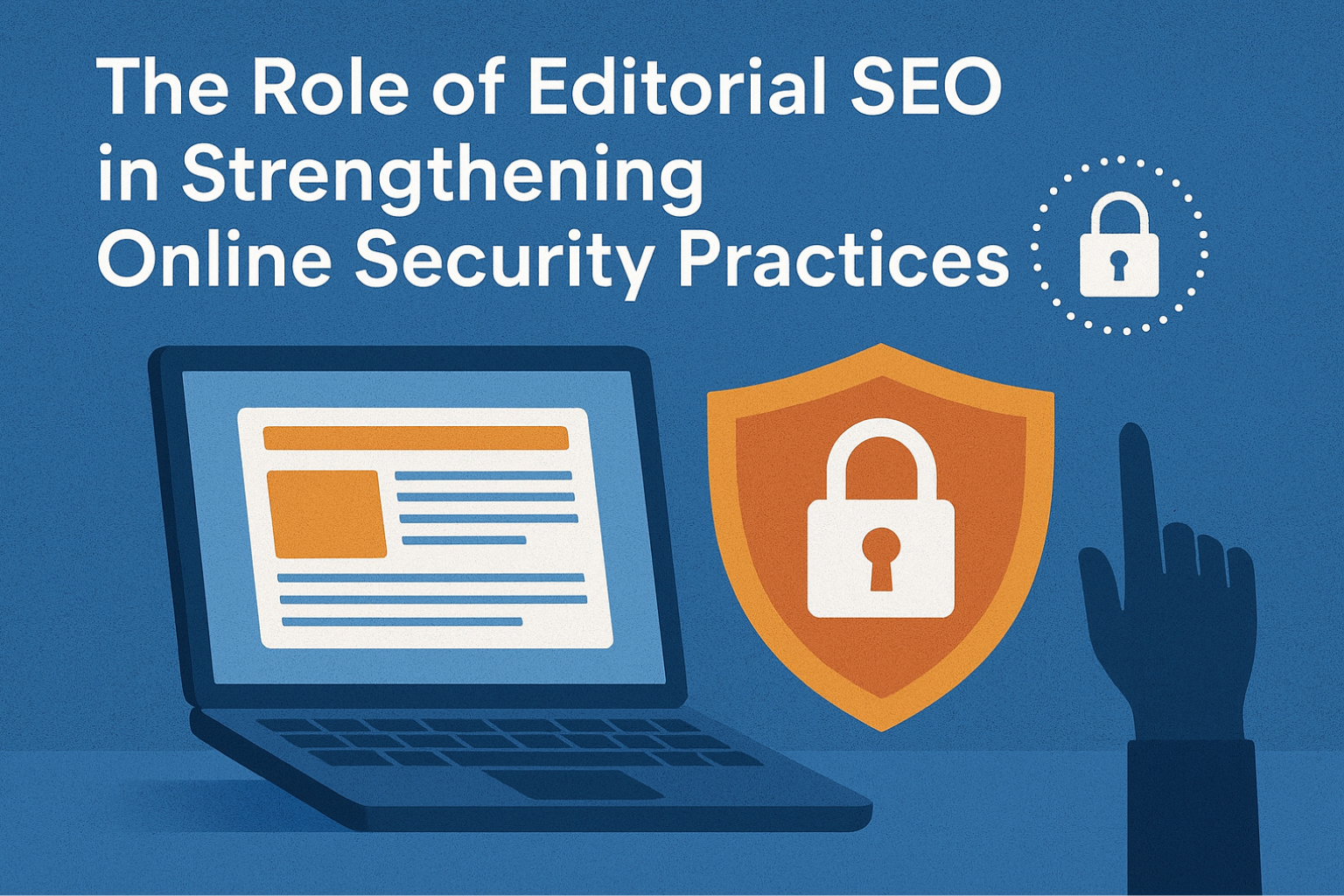The Role of Editorial SEO in Strengthening Online Security Practices

Organizations need to protect sensitive information. Editorial SEO, primarily associated with content visibility, heavily impacts online security frameworks. Read on to explore how to integrate editorial SEO with security practices to improve overall cybersecurity and boost the organization’s defenses against potential threats.

Editorial SEO and Its Importance
Editorial SEO focuses on content that is informative, engaging, and optimized for search engines. It involves keywords, meta descriptions, and optimized titles that help increase visibility on search result pages. Its implications stretch beyond visibility in search engines: effective editorial SEO practices contribute to the value and authority of websites.
Search engines prioritize sites that present authority and relevance in their content, indirectly supporting online security. Today, robust content strategies reinforce a business’s reputation for public perception. The intersection of content marketing and SEO builds trust with visitors who seek reliable information.
Cybersecurity GRC Services
At the heart of the governance, risk management, and compliance triad is the need to provide adequate protection of information through structured policies and regulations. The right cybersecurity governance risk and compliance services align with editorial SEO strategies, as both domains establish and maintain trustworthy online environments. A strategic approach includes implementing protocols that inform all cyber participants about risk management.
Organizations face challenges related to how much accountability they enforce among teams regarding cybersecurity practices. Incorporating this system into your SEO efforts guarantees that online content is informative and thoroughly vetted against compliance requirements. Experts emphasize that merging these strategies effectively improves cybersecurity posture across industries.
The Intersection of SEO and Cybersecurity
Integrating SEO with cybersecurity practices aligns well due to overlapping interests in credibility and trustworthiness online. Search engines penalize sites with security vulnerabilities, meaning a lack of proper security measures can adversely affect SEO performance. Monitoring website health should involve reviewing security certifications, encryption standards, and maintaining Software updates.
For organizations handling sensitive data, focusing solely on generic SEO tactics without considering the implications on cybersecurity might lead to overlooked vulnerabilities that worsen risks. Consistently slipping into obsolete practices harms SEO rankings, the business's security posture, and compliance status.
Building a Secure Content Strategy
A sound cybersecurity strategy must be present from the onset of content creation. This begins with defining a clear narrative and is supported by relevant data that informs audiences while protecting sensitive information. Editorial SEO should integrate security measures, such as using HTTPS, to ensure encrypted connections for users.
Providing varied content types (tutorials, articles, and infographics) engages users meaningfully, while correctly implemented SEO practices will guarantee that these resources reach the desired audience. Regular audits of your content guarantee its relevancy and that security measures are updated.
Continuous Evaluation and Updating Content
Maintaining an effective editorial SEO and cybersecurity strategy requires consistent evaluation and content updates. Conduct regular assessments of existing content so it stays relevant and compliant with both SEO standards and security practices. Utilizing analytics tools helps understand user behavior on previously published content, offering insights into areas of success or required enhancements.
Prioritize updates to older content that no longer reflects current best practices or factual accuracy. Protecting against misinformation guarantees that the audience receives reliable data when discussing cybersecurity. Investing time in updating page security, refreshing outdated protocols, and reaffirming user trust can boost credibility and SEO performance.
Leveraging User-Generated Content
Engaging with your audience through user-generated content can amplify trust and online security. Users can provide testimonials, reviews, and discussions about products or services. By nurturing a community where users actively interact with your content, you can improve the site’s credibility and directly relate it to protective security measures.
Users can contribute and can generate fresh perspectives and provide discussions that remain current and relevant. Manage this input effectively and protect your site from fraudulent or malicious content submissions. Properly moderating user-generated content allows you to verify information while adding layers of security to your platforms.
The Impact of Mobile Optimization on Security
Many users access websites via mobile devices, and optimizing the mobile experience demands the most attention. Search engines favor responsive design, which directly affects SEO rankings. Yet, mobile optimization transcends appearance: it implements safe writing practices, creates relevant landing pages, and verifies secure transaction processes.
Unoptimized mobile sites are vulnerable to cyber threats and can drive users away due to performance issues. Mobile optimization improves both usability and security, reflecting positively in search rankings. Proper mobile optimization should incorporate effective SEO strategies tailored for smaller screens, and users should find value in your content.

Emphasizing editorial SEO and its effect on online security promotes stronger practices and systems. By integrating security measures throughout the content creation process, organizations can bolster their reputations and defend against the rising tide of cyber threats. Staying ahead in the SEO landscape will depend on applying comprehensive security considerations to all aspects of digital content.





